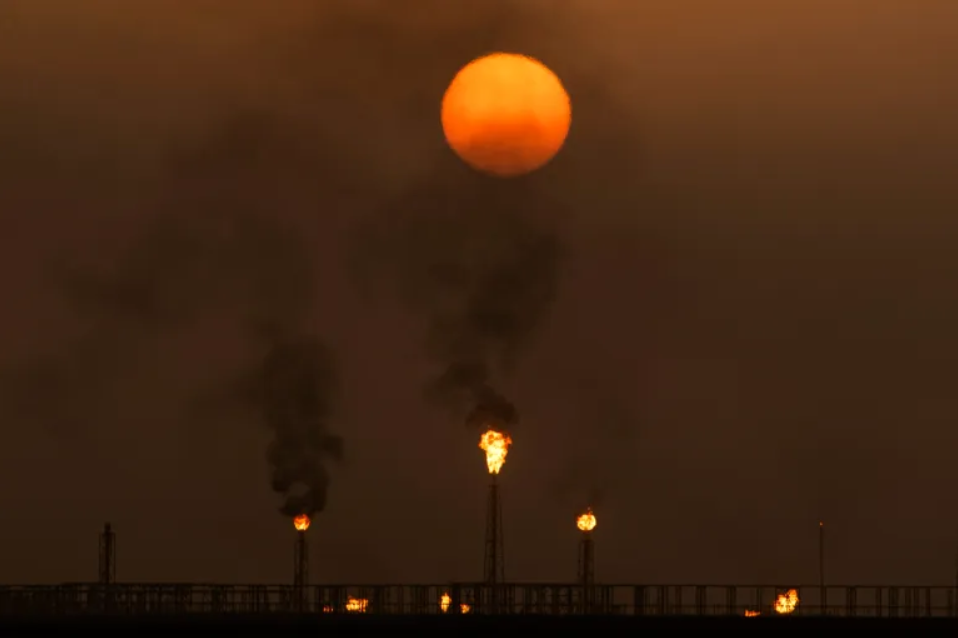“In the beginning, I had a lot of pain in my breast, back and arm. I ignored the pain because I thought it could be muscle spasms or an infection,” she said.
It was only in the summer of 2020, when she was finally able to visit a doctor in one of Erbil’s biggest hospitals, that she was diagnosed with breast cancer.
“My nipple was bleeding, and I had to get a biopsy immediately,” she said. She later underwent surgery and started chemotherapy, which, although completed, she continues to feel pain from.
Shireen is not alone. Nine other women in her block at Kawergosk have been diagnosed with cancer.
Doctors operating in the Kurdish region of northern Iraq and residents believe that flaring – the process of burning off petroleum gas by setting alight any excess in a jet of fire – by a nearby oil refinery may be contributing to a rise in cancer rates. The refinery is operated by KAR Group, Iraq’s largest private-sector energy company.
The KAR Group did not respond to a request for comment.
A study published last year in the Asian Pacific Journal of Cancer Prevention (APJCP) found that the number of patients with cancer doubled between 2013 and 2019 in Erbil and Duhok, also in northern Iraq, correlating with a resumption in production at oil facilities in the region following the end of the conflict with ISIL (ISIS).
Several residents shared their health records, with diagnoses ranging from respiratory disorders to cancer.
Shireen’s life has changed in the last decade. “We were happier in the village because everything we ate was organic, and our life and mental health were better when we lived there,” she said, referring to the village of Sheir in Qahtaniyah, Syria where she had been living.


 RSS Feed
RSS Feed